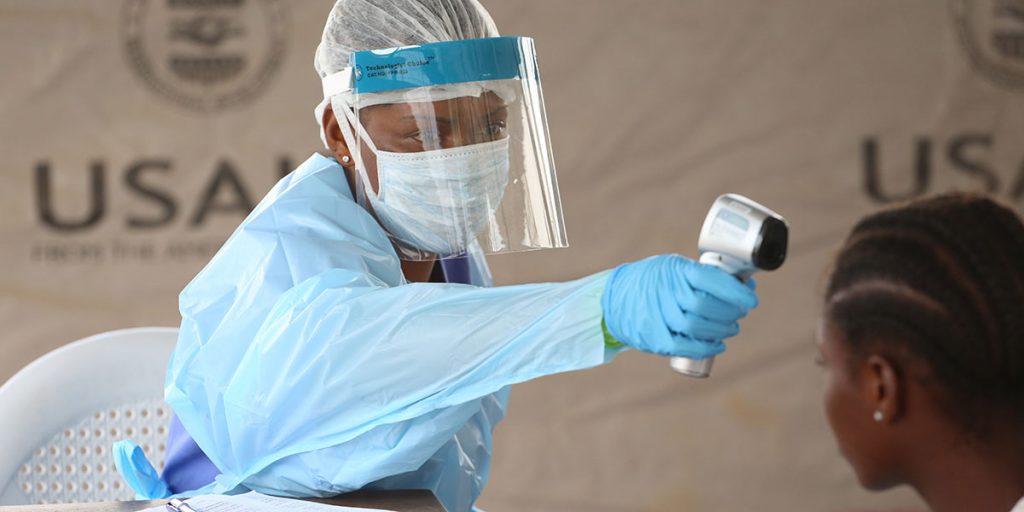
COVID-19 Conflict & Resilience Monitor – 15 July 2020
During the COVID-19 crisis ACCORD’s analysis will be focused on the impact of the pandemic on conflict and resilience in Africa.

During the COVID-19 crisis ACCORD’s analysis will be focused on the impact of the pandemic on conflict and resilience in Africa.

‘Women Rise for All’ to Shape Leadership in Pandemic Response and Recovery Source: UN News “Over the past months, people around the world have come to see what many of

New Report: Assessing UK Government Action on Women, Peace and Security in 2019 Source: Gender Action for Peace and Security (GAPS) UK In this shadow report, GAPS assesses the 2019

Spotlight on gender, COVID-19 and the SDGs: Will the Pandemic Derail Hard-Won Progress on Gender Equality? Source: UN Women / Ginette Azcona, Antra Bhatt, Sara Davies, Sophie Harman, Julia Smith,

Gender Inequality Exacerbates the COVID-19 Crisis in Fragile and Conflict-Affected Settings Source: Wold Bank Blogs / Caren Grown & Franck Bousquet The COVID-19 (coronavirus) pandemic has exposed and exacerbated many

The Women, Peace and Security Update Source: Australian Strategic Policy Institute / Tracy Beattie, Hal Crichton-Standish, Daria Impiombato, Alexandra Pascoe and Albert Zhang This article summarizes publications and other articles
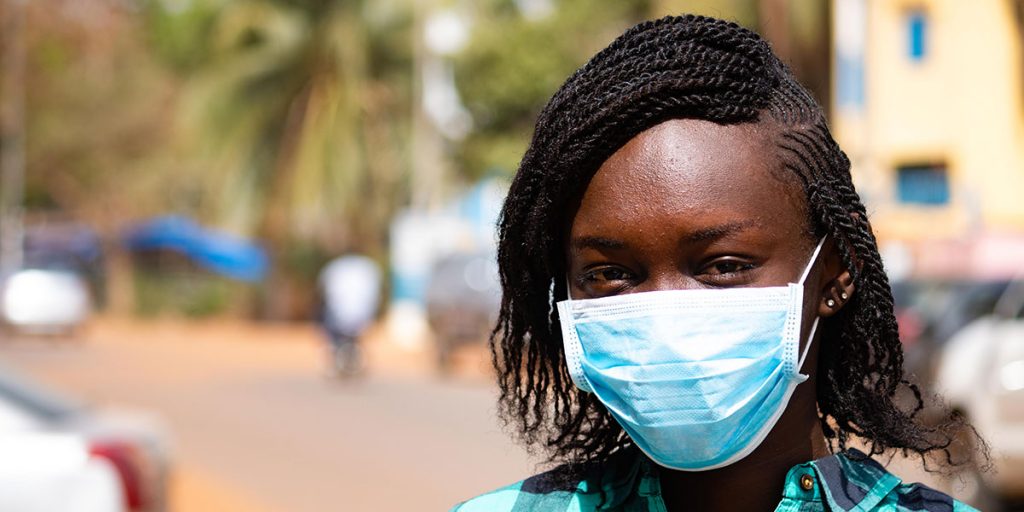
During the global crisis ACCORD’s analysis will be focus on the impact of the pandemic on conflict potential in Africa
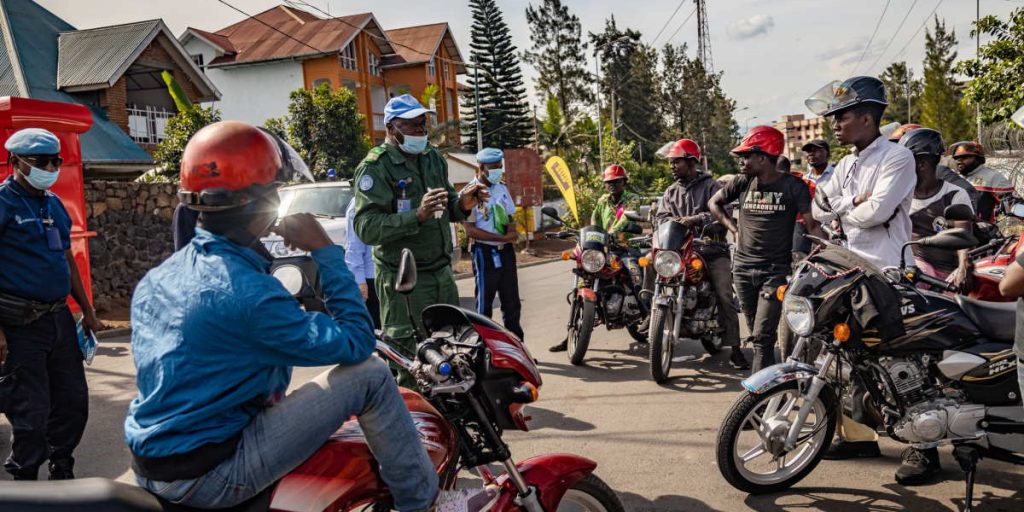
The COVID-19 pandemic has significantly disrupted peacebuilding. All travel has been halted and new ways of working have had to be developed. Programmes have had to be reviewed and adapted to the new circumstances. In most cases, international staff are now working remotely, and national and local peacebuilders now have to continue the work on their own.
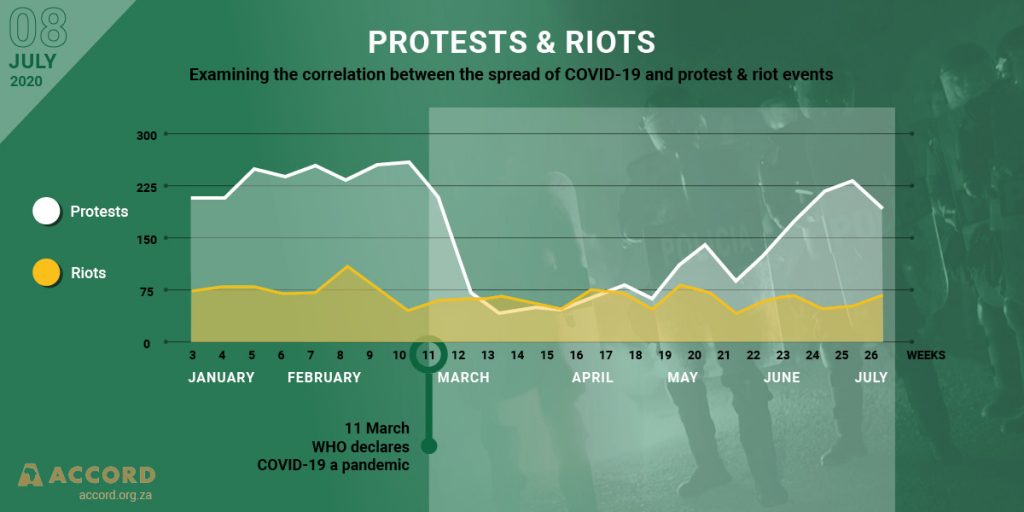
Approximately 100 days into the COVID-19 pandemic, there is a notable increase in social and political protests in some countries in Africa. These protests reflect pre-existing frustrations with social and political conditions that have now been further exacerbated by the COVID-19 restrictions, especially in the spheres of health, education, politics and service delivery.
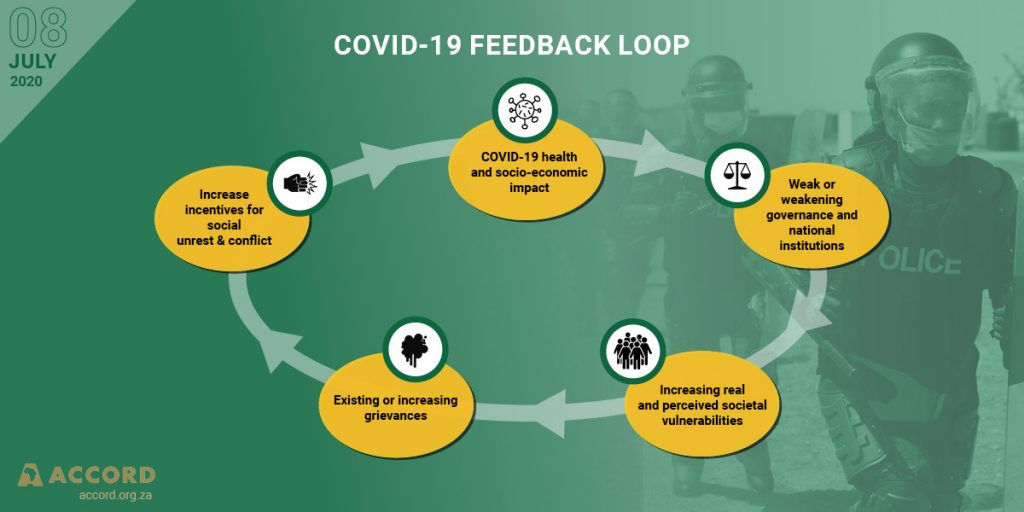
Public trust in governance and institutions has emerged as an important element that determines the resilience of a society to cope with the COVID-19 pandemic. This helps to explain why some governments have been able to maintain onerous lockdowns effectively and why others with relatively strong economies and health systems are struggling to contain the spread of the virus.